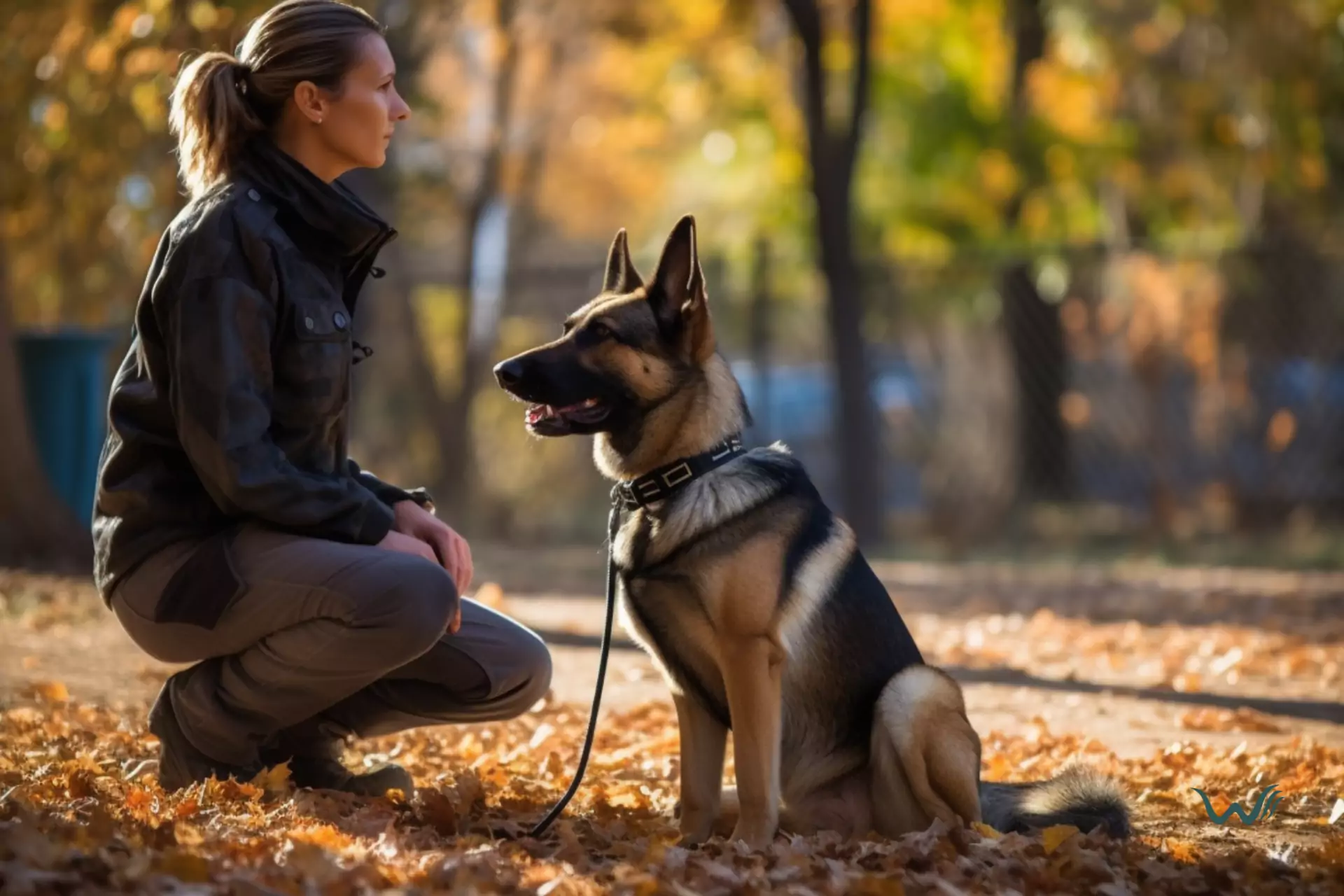

Sit! Stay! Good Dog! Teaching Your Dog To Sit
by Tayyaba Amir
Last updated: February 28, 2024
Verified and Approved by:
Angela Morris,
MSW, LCSW
Fact Checked

Are you ready to teach your beloved furry friend a new trick? Well, look no further because we have just the skill for you to teach your dog – the “Sit” command! Teaching your dog to sit is not only a fundamental command but also a great way to establish trust and bonding between you and your canine companion. Plus, it’s a super impressive trick that will surely impress your friends and family.
In this article, we will guide you through the step-by-step process of teaching your dog to sit. We’ll cover everything from understanding the basics of dog training to troubleshooting common challenges you may encounter along the way. But before we dive into the nitty-gritty of the training process, it’s important to emphasize the significance of trust and bonding with your dog. Dogs are incredibly loyal creatures and have an innate desire to serve their humans. By establishing a strong bond with your dog, you not only create a loving relationship but also pave the way for successful training sessions.
Key Takeaways
- Teaching your dog to sit is an important command for establishing trust and bonding.
- Dogs respond well to positive reinforcement, such as treats, praise, and affection.
- Consistency is key in training, using the same commands and techniques each time.
- Building a strong bond with your dog requires spending quality time together, using positive reinforcement, and engaging in training sessions.
Understanding the Basics of Dog Training
Did you know that over 90% of dog owners struggle with understanding the basics of dog training, making it difficult to effectively teach their dogs? It’s a common challenge that many dog owners face, but it doesn’t have to be that way. By taking the time to understand the basics of dog training, you can not only improve the relationship between you and your furry friend, but also help them become well-behaved and obedient.
The first step in understanding the basics of dog training is to recognize that dogs are intelligent creatures who thrive on positive reinforcement. This means that rewarding good behavior is much more effective than punishing bad behavior. By using treats, praise, and affection, you can motivate your dog to learn and obey commands.
It’s important to know that consistency is key when it comes to training. Dogs learn through repetition, so it’s important to use the same commands and techniques each time. With patience and dedication, you can teach your dog to sit, stay, and follow other basic commands.
The more you understand the basics of dog training, the better equipped you’ll be to teach your dog and create a strong bond between you. So, take the time to learn and apply these principles, and you’ll be amazed at the results.
Establishing Trust and Bonding with Your Dog
Building a strong bond with your furry companion is essential for a harmonious and fulfilling relationship. When it comes to training your dog, establishing trust and bonding should be your top priority.
Here are a few ways you can build a strong bond with your dog:
- Spend quality time together: Make sure to set aside time each day to spend one-on-one time with your dog. Whether it’s going for a walk, playing fetch, or simply snuggling on the couch, these moments of undivided attention will help strengthen your bond.
- Use positive reinforcement: Reward your dog for good behavior with treats, praise, and affection. Positive reinforcement not only helps your dog understand what behaviors are desired, but it also builds trust and reinforces your bond.
- Engage in training sessions: Training your dog not only teaches them important skills, but it also provides an opportunity for you to bond. Use training sessions as a chance to work together, communicate, and learn from each other.
- Be patient and understanding: Just like humans, dogs have their personalities and learning styles. It’s important to be patient and understanding as you navigate the ups and downs of training. Show empathy and always approach training with a positive attitude.
By following these tips, you will not only establish a strong bond with your dog but also create a solid foundation for successful training. A happy and well-trained dog is a reflection of the time and effort you’ve invested into your relationship. So, go ahead and enjoy the journey of building a deep and trusting connection with your furry friend!
Teaching the “Sit” Command Step by Step
First, find a quiet and distraction-free space where you can work with your furry friend. This could be your backyard, a quiet room in your house, or a calm park. It’s important to eliminate any potential distractions so that your dog can focus on your commands. Once you have found the perfect spot, make sure to have some treats handy. Dogs respond well to positive reinforcement, so having treats as a reward will motivate them to learn.
To begin teaching the “sit” command, start by holding a treat close to your dog’s nose. Slowly move your hand upwards, which will naturally make your dog lower their bottom to the ground. As their bottom touches the ground, say the word “sit” in a firm and clear voice. Once they are in the sitting position, immediately give them the treat and praise them. Repeat this process several times, gradually reducing the height of your hand until your dog can sit without the treat being present.
Be patient and consistent during this training process. Dogs learn through repetition, so it’s important to practice the “sit” command regularly. Additionally, make sure to keep the training sessions short and fun, as dogs have short attention spans. With time and practice, your furry friend will learn to sit on command, and you will have a well-behaved and obedient companion.
Reinforcing and Practicing the “Sit” Command
To reinforce your dog’s understanding of the command, you can use treats as rewards and practice the sitting position repeatedly. Start by giving your dog the command to sit and then reward them with a treat when they successfully do so. Repeat this process multiple times, gradually increasing the duration of time your dog sits before giving them the treat. This will help them associate the command with the desired behavior and reinforce their understanding of what you are asking them to do.
In addition to using treats, you can also incorporate other forms of positive reinforcement into your training. Verbal praise, such as saying “good dog” or “good sit,” can help reinforce the behavior and let your dog know they are doing well. You can also incorporate physical rewards, such as petting or a belly rub, to further reinforce the positive behavior.
To help you keep track of your dog’s progress and ensure you are consistent in your training, here is a table to help you:
| Repetition | Command Given | Dog’s Response | Reward Given |
|---|---|---|---|
| 1 | Sit | Sits | Treat |
| 2 | Sit | Sits | Treat |
| 3 | Sit | Sits | Treat |
| 4 | Sit | Sits | Treat |
| 5 | Sit | Sits | Treat |
Troubleshooting Common Challenges in Teaching the “Sit” Command
When troubleshooting common challenges in teaching the “Sit” command, a helpful tip is to understand that practice makes perfect. It’s important to be patient and consistent with your dog as they learn this command. If your dog is having trouble understanding or following the command, try breaking it down into smaller steps. For example, instead of asking your dog to sit for an extended period of time, start by asking them to sit for just a few seconds and gradually increase the duration.
Another common challenge is when your dog becomes easily distracted during training sessions. To overcome this, make sure you’re in a quiet and familiar environment with minimal distractions. Use treats or rewards to keep your dog focused and motivated. Additionally, it may be helpful to train your dog in short sessions rather than long ones to prevent them from becoming bored or overwhelmed.
Teaching your dog to sit takes time and patience. Celebrate small successes along the way and never punish or scold your dog for not getting it right immediately. With consistent practice and positive reinforcement, your dog will eventually master the “Sit” command.
Frequently Asked Questions
How long does it typically take to train a dog to sit?
Typically, it takes a few weeks to train a dog to sit. Consistency and positive reinforcement are key. By using treats and praise, you can effectively teach your dog this basic command in no time!
What are some alternative methods to teach the u0026quot;situ0026quot; command?
To teach your dog to sit, try alternative methods like luring with treats or using a clicker. Lure your dog into a sitting position by holding a treat above their head, then reward and repeat.
Can I use treats other than dog treats as rewards during training?
Yes, you can use treats other than dog treats as rewards during training! Get creative and think outside the doggy bag. Just remember, the more enticing the treat, the more motivated your furry friend will be to learn those commands!
How do I prevent my dog from getting distracted during training sessions?
To prevent distractions during training sessions, create a calm and focused environment. Minimize noise, remove tempting objects, and choose a quiet location. Use high-value treats to keep your dog’s attention and reinforce desired behaviors.
Is it necessary to use a clicker or can I use verbal cues to teach the u0026quot;situ0026quot; command?
You don’t need a clicker to teach your dog to sit! Verbal cues work just fine. Use a clear and consistent command, like “Sit,” and reward your pup with praise or treats. They’ll catch on in no time!
Certify Your Emotional Support Animal Today

Why You Can Rely on Us?
At Wellness Wag, we believe your pet deserves care rooted in both science and compassion. Each article is carefully researched, written in clear language for pet owners, and then reviewed by qualified professionals to ensure the information is evidence-based, current, and practical for real-life care. Our goal is to help you feel confident in making informed decisions about your pet’s health and well-being.
Reviewed by
Angela Morris, MSW, LCSW
Angela is a licensed clinical social worker with 20 years of experience in patient advocacy and community mental health. She has assisted numerous clients with ESA evaluations and brings a deep understanding of disability accommodations, ensuring that all information is accurate, supportive, and practical.

Written by :
Tayyaba Amir
Last Updated :
February 28, 2024










